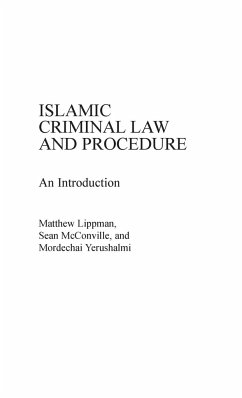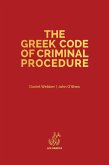Relatively little has been written in English about the Islamic legal tradition, a serious deficiency in light of recent tensions in the Middle East and the Islamic revival in general. The body of Islamic law, or Shari'a, is central to the understanding of Islamic society and the current conflict between fundamentalism and modernism in the Islamic world. While acknowledging the regional differences in the local characteristics of the Shari'a, this work provides a straightforward introduction to procedure and punishment, discussing the major concepts, principles, and practices. The establishment of the Shari'a signified a progressive step in the development of legal practice as it modified the Islamic customs of retaliation and blood revenge. Nevertheless, Islamic law differs from common and civil codes due to its religious and virtually unchangeable nature.
Hinweis: Dieser Artikel kann nur an eine deutsche Lieferadresse ausgeliefert werden.
Hinweis: Dieser Artikel kann nur an eine deutsche Lieferadresse ausgeliefert werden.








